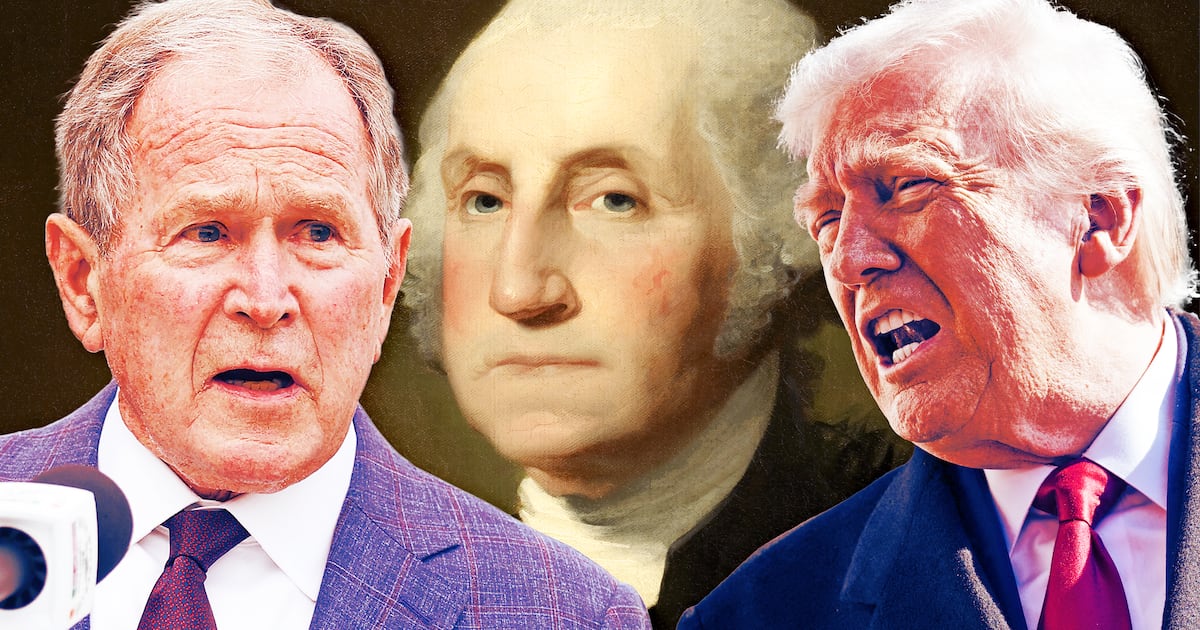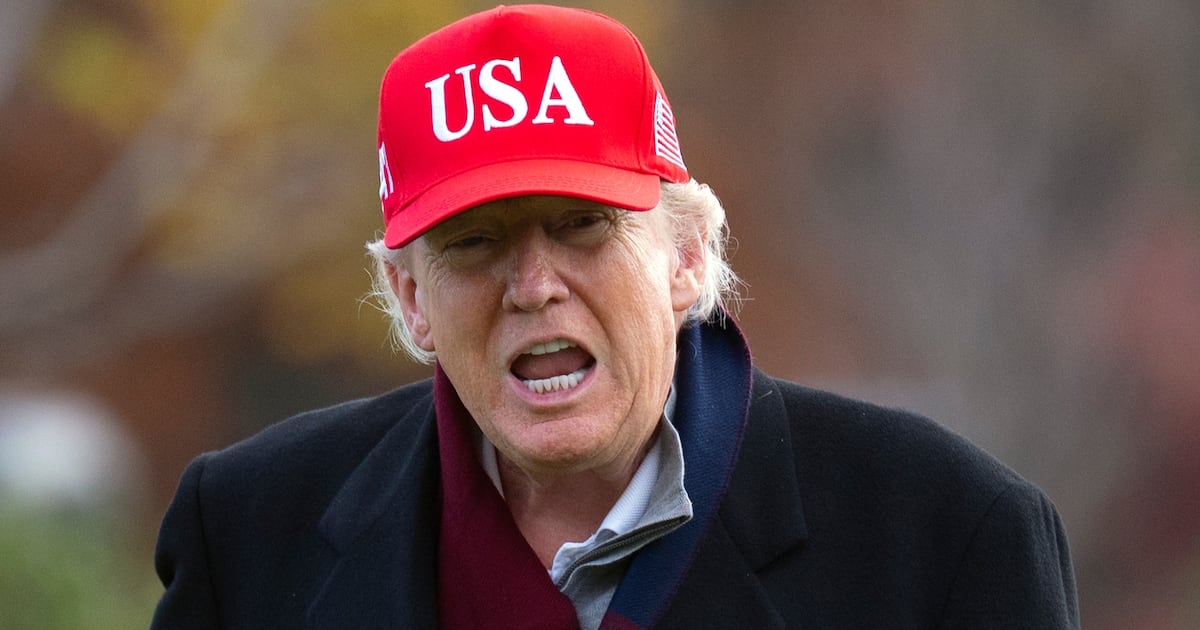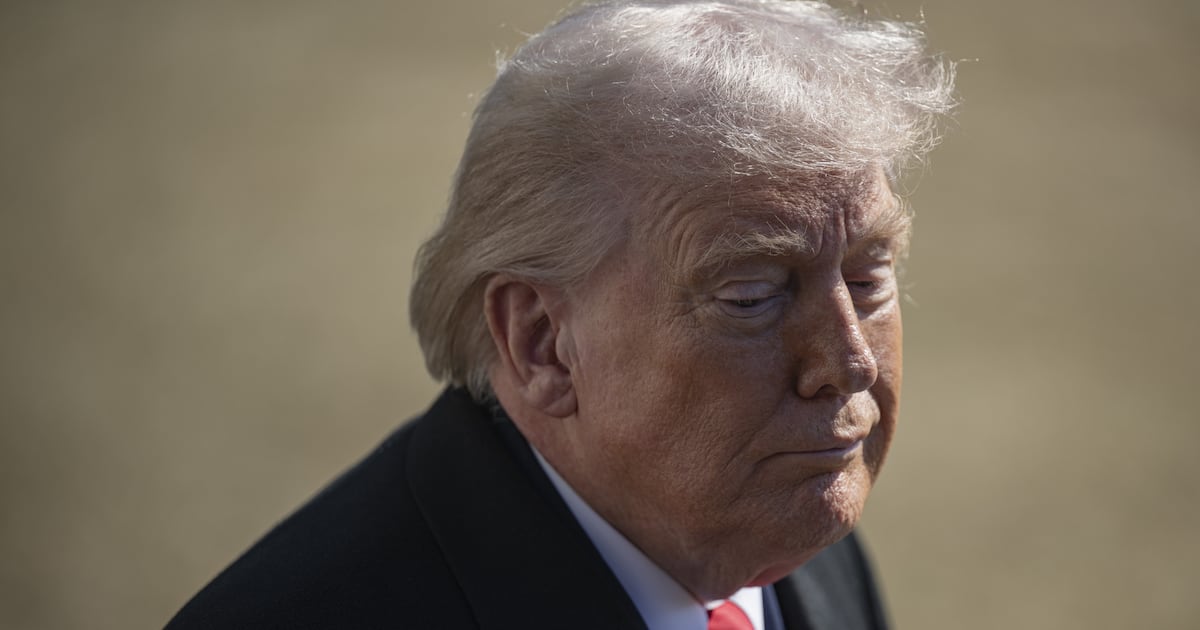LEXINGTON, Kentucky — Matt Bevin was scheduled to arrive at the Oasis Pizza Station in Barbourville at noon, but showing remarkable punctuality for a politician, he walked through the door into the dark, smoke-filled restaurant at promptly 12:02.

Finding only three non-voters and a staff that didn’t know he was coming or who he was, Bevin remarked that he “must be early.”
But given the Tea Party successes of the last two cycles and polling that shows Bevin losing in a landslide to Senate Minority Leader Mitch McConnell in Kentucky’s Tuesday primary, it seems safe to say that Bevin is late.
Despite a lot of hype when he first entered the race last July, Bevin never really took off, and the only real questions political observers in the Bluegrass State will be asking on Tuesday are how much of the pie can Bevin end up with and will it hurt McConnell in the fall.
There are a number of reasons why Bevin never got off the ground: There’s not much room to McConnell’s right, he struggled to raise money to match McConnell’s Death Star war chest, and he repeatedly played into McConnell’s efforts to define him as prone to exaggeration and untrustworthy.
But perhaps the main reason Bevin never found any traction is because McConnell was prepared and waiting for him.
Kentucky’s senior senator, after all, had a front-row seat to the first Tea Party wave in 2010, watching as the upstart Rand Paul knocked off Trey Grayson, McConnell’s handpicked successor to former senator Jim Bunning.
In 2012, McConnell watched again as extreme candidates like Indiana’s Richard Mourdock and Missouri’s Todd Akin put both feet and one hand in their mouths, falling flat on their faces in the general election and denying McConnell what he covets the most: becoming Senate majority leader.
The decision was made early on: 2014 would be different, and McConnell, joined by senators Lamar Alexander and John Cornyn, would lead the charge, making Bevin a proxy for a larger war against outside groups like the Senate Conservatives Fund who had propped up unelectable Republicans in the past.
McConnell, hobbled by dismal approval numbers, went to work raising money, locking up Paul’ s endorsement and, once he got in the race, defining Bevin with a blistering set of periodically released oppo dumps from which Bevin could never recover.
After the Lexington Herald-Leader reported McConnell’s plans for a proxy war in late October, McConnell aide Josh Holmes described the race to The New York Times like the classic barroom scene from A Bronx Tale, recalling when a group of outlaw bikers aimed to destroy the bar owned by mafia boss Sonny, played by Chazz Palminteri.
“Now yous can’t leave,” Sonny tells the bikers after he locks the door to the bar with them inside.
Months later, McConnell himself told the paper he thought “we are going to crush them everywhere.”
The senator never relented. No matter how bad the polling or news cycles were for Bevin, McConnell kept hammering him, following through with the campaign’s decision last year to answer every ad the challenger put up.
Online resumes, bailouts, and cockfighting—Bevin began to weigh a ton; his campaign stayed grounded.
“I think he’s telling probably a lot of lies on television about Mitch,” said Darrell Uhls, a Simpson County farmer who came to see McConnell at a campaign stop in Franklin.
Despite stepping on a series of land mines, Bevin fought like a tiger.
He campaigned relentlessly—on Monday, he was flying to every region of the state—and after putting another $350,000 of his own money in the race in April, Bevin spent almost $1 million out of his own pocket.
On Monday, Holmes released a memo to the media noting that Bevin’s campaign spent more money than any challenger to an incumbent in the last two cycles. Bevin spent $1 million more than Mourdock did in defeating Richard Lugar, the former senator from Indiana.
As one McConnell aide said throughout the contest, McConnell “ain’t Lugar,” and McConnell spent well over $10 million, overwhelming Bevin at every point and building a ground game McConnell aides believe will pay off handsomely in November.
And while there is no “Mission Accomplished” banner hanging outside of McConnell’s Louisville campaign headquarters and victory might never be declared, McConnell does appear to have won the battle, if not the war. Republican incumbents appear assured of survival, and majority status is within reach.
The immediate concern for McConnell is to strike a balance between end-zone dancing over the vanquished outside groups that have twice potentially cost him the majority and not further alienating Republican voters who McConnell needs unified and eager to turnout in November.
On Saturday, after rallying the faithful at his Warren County headquarters in downtown Bowling Green, McConnell tried to find the right note after The Wall Street Journal’s Patrick O'Connor asked him if the Tea Party wave had been broken.
“Look, I think there’s nothing wrong with having primaries,” McConnell said. “Look at Kentucky. For many years, the Democratic primary was the election. Republicans weren’t even competitive in November. So I don’t think anybody ought to be offended by the fact that there are primaries. It is important for us to nominate people who can actually win in November, and we’ve had some challenges in that regard over the last two cycles. I’m confident that’s not going to happen this year, and that of course makes it more likely that I’ll be the leader of the majority and not the leader of the minority next year.”
The fall campaign against likely Democratic nominee Alison Lundergan Grimes promises to be an even more bruising affair for all involved, but Republicans on McConnell's side believe that a message has been sent.
Former McConnell chief of staff Billy Piper said that the larger effect of the proxy war against the outside groups, McConnell’s early preparation and what appears to be a primary win is that “sitting members have realized they have to prepare.”
“They have to do the basic blocking and tackling to be ready for any challenge,” Piper said. “And I think that’s good. You don’t want to get lazy.”
If McConnell and other Republican candidates are able to win and take control of the Senate, Piper said, “It’ll be because the incumbents who were challenged were better prepared and more willing to fight back smartly.”
“[They] didn’t just assume that ‘I’m not vulnerable to a challenge’ and all of a sudden wake up and it was too late and the wave was already breaking over them,” Piper said.
For his part, Bevin is undeterred by conventional wisdom, overwhelming polling evidence and daily anecdotal proof that indicate he is headed for a lopsided defeat on Tuesday.
After striking out at the Oasis Pizza Station, Bevin walked across the street, finding potentially kindred spirits at the Knox Pawn shop. Fortune smiled as Lyndsay Yoakum, the owner’s daughter, had come across a picture of Bevin’s nine children—four adopted—and Googled him the night before.
“You’re always looking for that one person that would be different than the rest,” Yoakum told Bevin. “And honestly, your kids caught my eye.”
As Bevin commiserated with the Yoakums about the sad state of politics in America, one of Bevin’s ads came on the 60-inch TV dominating the counter space between them.
“Good to know that they’re out there, actually,” Bevin said. “How funny is that? This is the first time I’ve ever seen one of my actual ads on television. I’ve paid plenty of money for them. It is the first time I’ve ever seen one because I don’t watch TV, ever.”
As it always does, the race now comes down to turnout. McConnell will enjoy a full dress rehearsal of his ground game, and Bevin will hope that disdain for McConnell equates to enthusiasm to get to the polls.
Because even though Yoakum and her father, Mack, said they couldn't stand McConnell, Mack Yoakum repeatedly shook his head sadly, saying things like “I can’t see that it matters,” as Bevin railed against voter apathy.
Grimes, Kentucky’s secretary of state, predicted last week that turnout will be around 30 percent. When Paul beat Grayson in 2010, turnout was at 34 percent.
Bevin repeatedly noted that in last week’s North Carolina primary, only 16 percent showed up to vote.
“Don’t give up,” Bevin said. “If we believe we’ve lost, we have. If we believe there’s no point, we’re right. Don’t believe that. Because the point is if that’s the case, then you better just find yourself a piece of land and learn how to grow food on it.”
McConnell, on Saturday, lunched at Tanglewood Farms Restaurant in Franklin with fewer than 50 supporters. He didn’t mention Bevin in his remarks there. He didn’t mention Bevin as he and his wife, former Secretary of Labor Elaine Chao, rode in the back of a red Camaro through the small route of the Adairsville Strawberry Festival Parade. And he didn’t mention him in his remarks to supporters in Bowling Green.
McConnell was focused on fall, on Grimes, and, more than anything, on President Barack Obama, who the senator hopes to tie to his Democratic opponent like teammates in a three-legged race.
As he aims for a sixth term, McConnell is hoping to frame the message as Kentucky vs. Obama, warning that America is on the verge of becoming a “Western European nation” and seizing on the president’s deep unpopularity in the Bluegrass State.
“There’s no place in America where that debate is more on display than right here in the commonwealth of Kentucky,” McConnell said in Bowling Green. “So we have an opportunity this year to send an important message to the rest of the country: We’re not going to take this any longer. We’re going to go in a different direction.”
It’s a similar message to the one McConnell is hoping to send the Tea Party on Tuesday.






